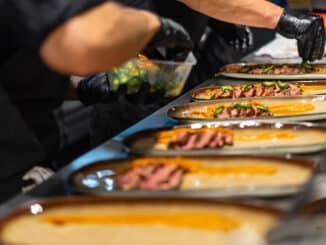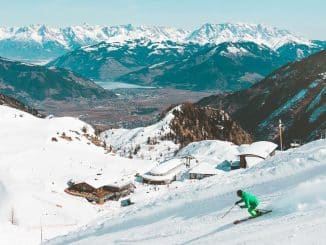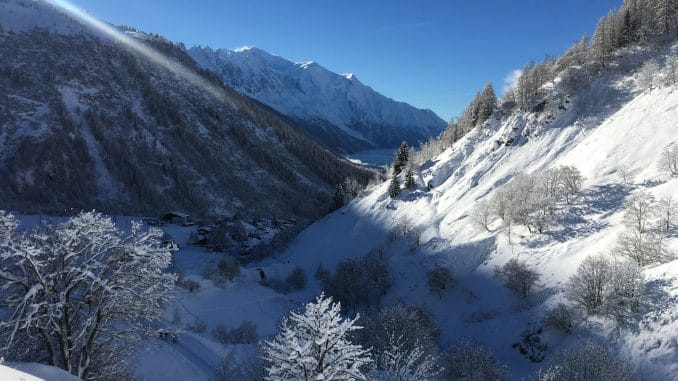
The arrival of the COVID-19 pandemic has changed the day to day life of almost everyone in the developed world. Offices are deserted as workers move their operations to their houses, streets are empty of people, and travel has stopped for all but the über-wealthy. For those of us living in the French Alps and relying on the tourism industry, it can feel like the world has stopped entirely.
As life shrinks to the size of our individual bubbles, you might find yourself wondering what life is like in French ski resorts during a pandemic. How are locals, who usually make a living off an industry that has been made next to impossible due to the arrival of the Coronavirus, holding up in their ghost towns?
Well, as your friendly neighbourhood mountain-dweller, I’m here to give you the full rundown on what it’s really like to weather the pandemic in the mountains.
1. No lifts? No problem
The ski lifts might be staying firmly shut for the season, but determined locals and dedicated skiers aren’t letting that slow them down. The French Alps are full of skiers and snowboarders who’ve got their snow-shoes, skins, and splitboards out and started earning their turns.
It might be a harder, longer, and sweatier way of getting up the mountain, but for skiers who know what they’re doing it’s well worth the effort. French ski resorts have never been so quiet, and although schools are still able to use the ski lifts, there’s pure, un-skied snow for everyone. Locals in the French Alps tend to be eager enough skiers to see the three-hour hike up as worth the two minute ride down.
With that said, as the mountains are less inhabited than usual and this season it’s snowed so much there’s a good snow base all the way down into Chamonix town, avalanche risk is high and there have already been huge slips in Tignes amongst other resorts. Skiers going up the mountain should be more careful than usual and ensure they have avalanche transceivers, shovels, and probes at all times.
This year more than any other, taking safety precautions is vital.
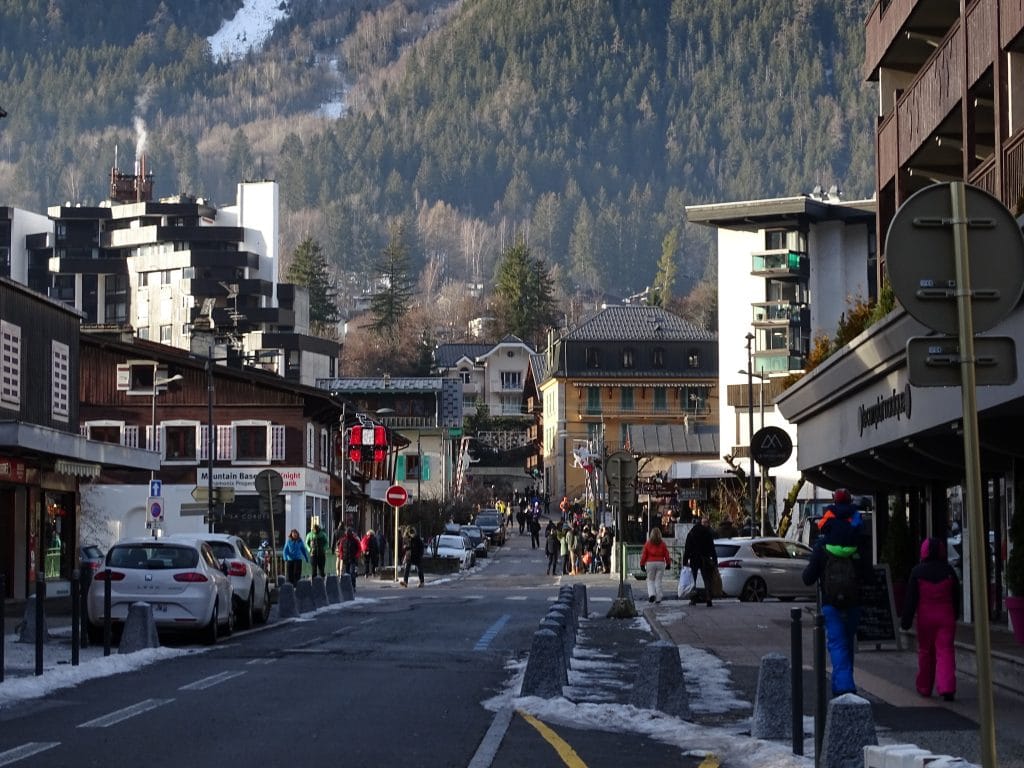
2. There are still tourists
Amongst the eager skiers who enjoy ski touring and see the lack of lift access as a brilliant turn of events, there are plenty of French residents who just want to get away from it all and spend a week or two in a beautiful mountain environment. For these tourists, a week in the French Alps is about wandering through snowy landscapes, drinking vin chaud from the outdoor stands, and spending their evenings beside the fire.
French ski resorts might not be busy, the way they are when the slopes, bars, and restaurants are open, but they’re still spectacular, beautiful places to spend time, and the French have been choosing staycations in the mountains when they want to have a break from day to day pandemic life.
In point of fact, while the mountain itself has generally been quiet, the town was as busy as ever during the Christmas and New Year period. Plenty of families and small groups of friends from France, Switzerland, and Italy chose to get away in the French Alps over the holidays, in spite of the pandemic.
3. The French Alps are not the same without the bars
The bars and restaurants are an important facet of ski holidays in the French Alps; living in a ski resort where the bars are closed and only a few restaurants offer takeaway food is a very different experience.
While people have been drinking vin chaud and beer in plastic cups in the streets, the absence of real bars and the 6 pm curfew means that après ski in French ski resorts has all but disappeared. Even well known après spots like the Folie Douce have had to close their doors and shut down the live music. Short ski days and long après sessions belong to life pre-pandemic, so skiing has suddenly become a whole lot more wholesome than it used to be.
Yes, for those of us still hiking up hills for one run down again, it’s a quiet drink and then an early bedtime rather than ski boots on at 11 pm.
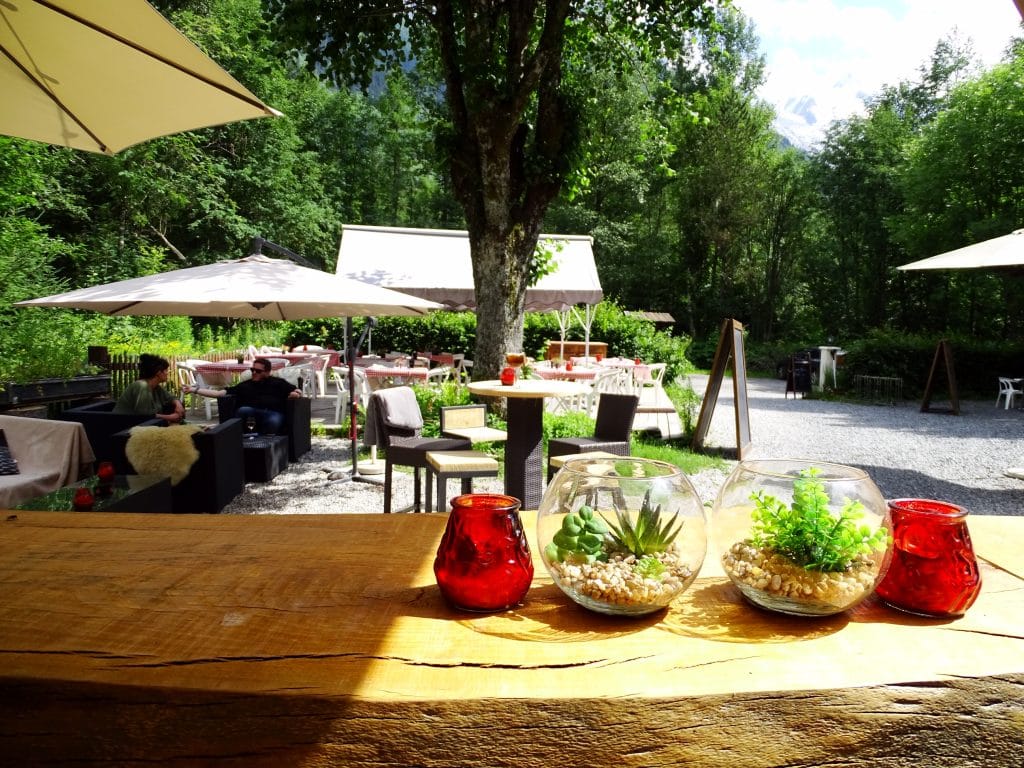
4. A shift is coming in how employees are paid
For those locals who make a living in the service industry, the closure of the bars and restaurants has meant joblessness and reliance upon governmental assistance. For employees working off the books, without the CDI to prove they’ve been contributing, this has meant they lose their earnings completely.
As French ski resorts historically employed a lot of their local staff with either minimal hour contracts, or in cash only payments, many locals have found themselves relying on savings. Since Brexit, employing workers on English contracts has also stopped being an option. This has caused a shift that began changing the way companies approached employing their staff even before the pandemic hit.
The changes brought on by Brexit will only speed up after the pandemic, with workers aware of what risks they take when they choose to work for cash only. Fully contributing, with on-the-books employment, will increasingly be a vital part of life in the French Alps.
5. If you’ve got to weather a pandemic anywhere…
In spite of the difficulties workers in French ski resorts are facing, everyone is very aware of how fortunate they are to be weathering a pandemic in such beautiful surroundings. Whilst life in the French Alps is seasonal at best and can be difficult for locals, even now, we are incredibly lucky to live in the mountains.
For those of us still working, or with jobs that pay our wages in spite of work being halted due to the pandemic, life in the French Alps is good. We get to go up the mountains every free day we have, we live in small towns with our friends, and we can socially distance without sitting in our houses for 20hrs a day. It’s true that times are hard, but if you’ve got to live through a worldwide pandemic you might as well do it in the mountains!

